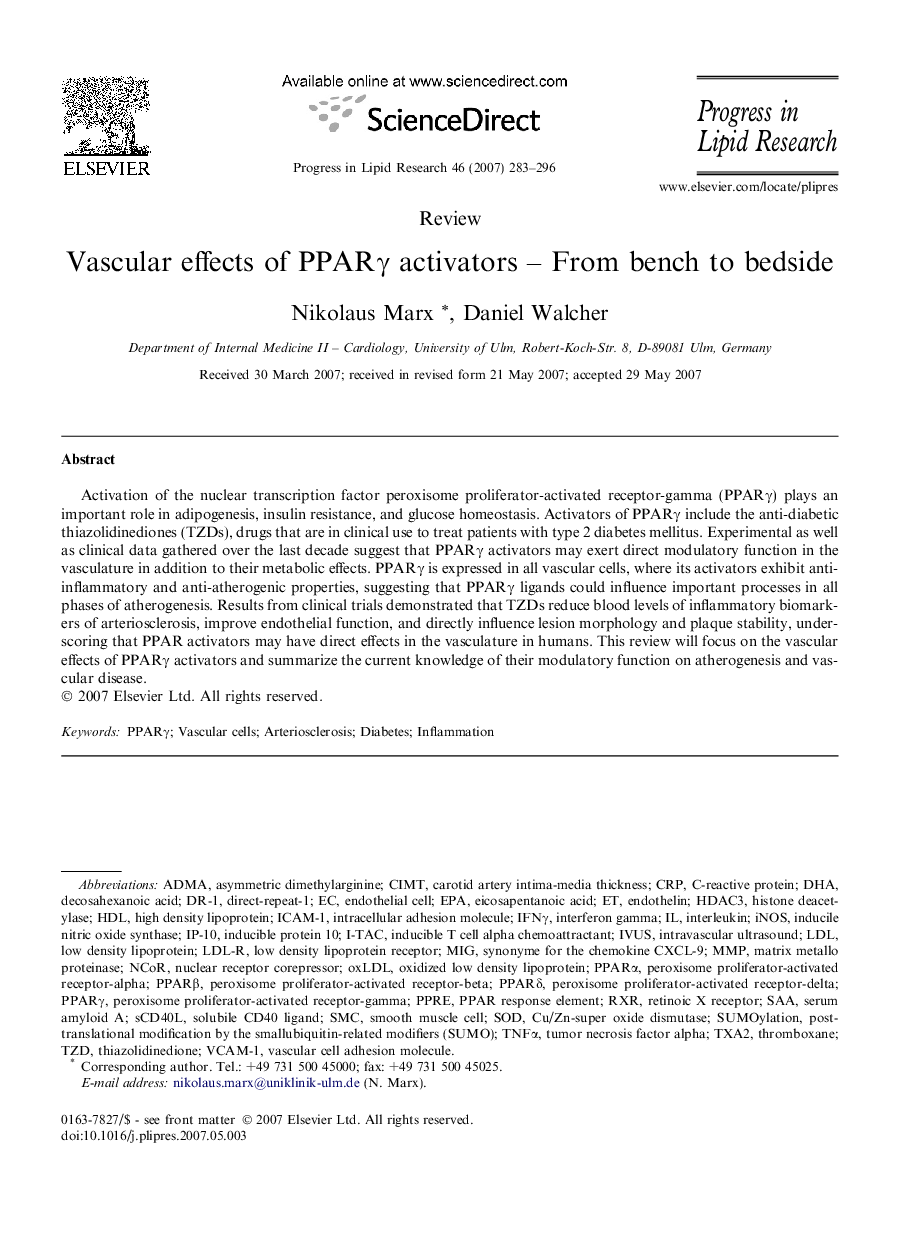| Article ID | Journal | Published Year | Pages | File Type |
|---|---|---|---|---|
| 2019279 | Progress in Lipid Research | 2007 | 14 Pages |
Activation of the nuclear transcription factor peroxisome proliferator-activated receptor-gamma (PPARγ) plays an important role in adipogenesis, insulin resistance, and glucose homeostasis. Activators of PPARγ include the anti-diabetic thiazolidinediones (TZDs), drugs that are in clinical use to treat patients with type 2 diabetes mellitus. Experimental as well as clinical data gathered over the last decade suggest that PPARγ activators may exert direct modulatory function in the vasculature in addition to their metabolic effects. PPARγ is expressed in all vascular cells, where its activators exhibit anti-inflammatory and anti-atherogenic properties, suggesting that PPARγ ligands could influence important processes in all phases of atherogenesis. Results from clinical trials demonstrated that TZDs reduce blood levels of inflammatory biomarkers of arteriosclerosis, improve endothelial function, and directly influence lesion morphology and plaque stability, underscoring that PPAR activators may have direct effects in the vasculature in humans. This review will focus on the vascular effects of PPARγ activators and summarize the current knowledge of their modulatory function on atherogenesis and vascular disease.
